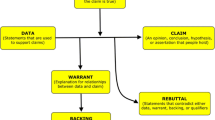Abstract:
Discussion-based exercises are a prevalent form of training in emergency management, aimed at improving coordinative decision making between the various agencies involved in disaster response. In each exercise, small multi-agency groups of decision makers discuss potential courses of action within a fictitious disaster scenario presented as a textual narrative supported by visual materials. We present a cognitive engineering analysis of the problem of designing disaster scenarios for effective discussion-based exercises. The analysis was carried out through the development of a pilot authoring environment to establish and address the requirements of a training organisation in the UK. The pilot authoring environment embodies a simple theoretical model of the exercise process in which facts of a disaster scenario afford discussion of pertinent issues which are elicited by considerations fed to trainees. This representational scheme allows the authoring environment to complement and extend authors’ mental models of exercises, and thereby enhance five aspects of authoring: rationalisation; continuity of rationale; evolution; adaptability; and the integration of evaluation feedback.
Similar content being viewed by others
Author information
Authors and Affiliations
Rights and permissions
About this article
Cite this article
Smith, W., Dowell, J. & Ortega-Lafuente, M. Designing Paper Disasters: An Authoring Environment for Developing Training Exercises in Integrated Emergency Management. Cognition, Technology & Work 1, 119–132 (1999). https://doi.org/10.1007/s101110050038
Issue Date:
DOI: https://doi.org/10.1007/s101110050038




